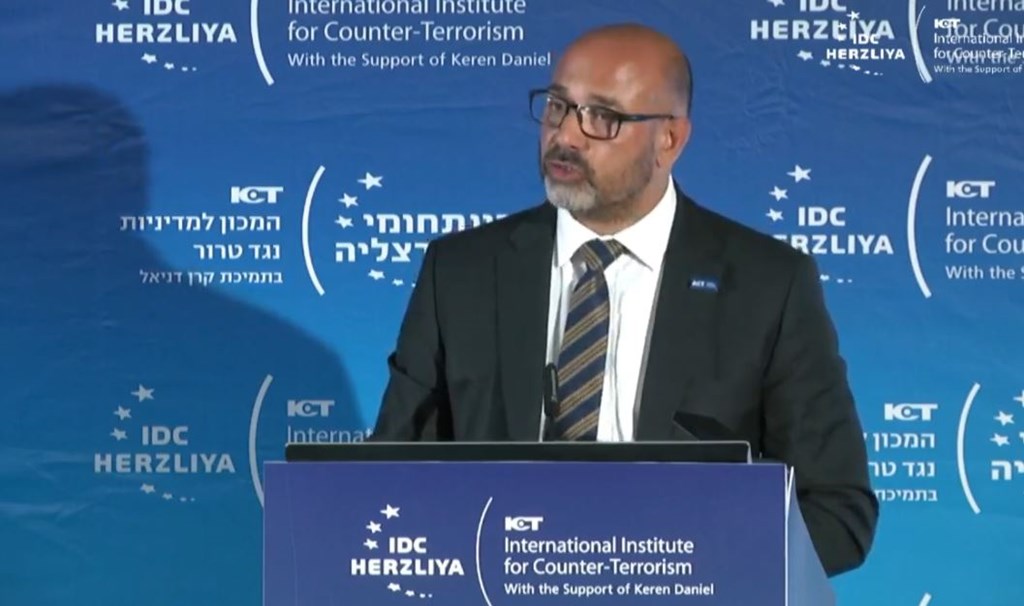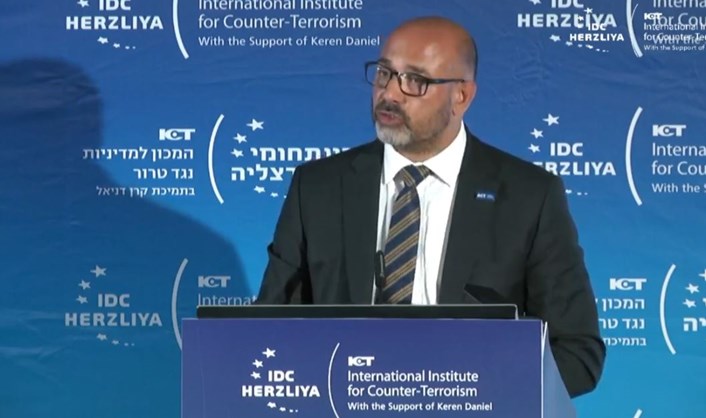
09 Sep 2019
ACSO Neil Basu - The Independent Review of Prevent must "ignore the malign detractors"
Head of CT Policing urges Independent Reviewer of Prevent to find the common ground.
The UK’s most senior counter terrorism officer has urged the new Independent Reviewer of Prevent to ignore the strategy’s ‘malign detractors’ and see the ‘amazing work’ being done to protect people vulnerable to radicalisation.
Assistant Commissioner Neil Basu’s comments came as he revealed the number of foiled attacks since the Westminster atrocity in March 2017 has increased from 19 to 22 – with seven relating to suspected right wing terrorism.
Mr Basu welcomed Lord Carlile’s appointment to scrutinise the government strategy which aims to stop people from being drawn into terrorism, and said he was confident the peer would find strong support for the principle of Prevent. However, he accepted many remain undecided about how best to safeguard those vulnerable to radicalisation.
Addressing an audience of international experts on terrorism today, Monday September 9, Mr Basu warned that attacks were becoming easier to carry out and harder to detect, so talking about Prevent must be a priority for everyone.
He said: “Why should everyone care? Because experience tells us that someone always knows a person is moving towards an attack.
“A recent study showed that in the time before most lone‐actor attacks, someone close to them knew about their growing ideology and violent intent. Mostly, they chose not to report it.
“For Prevent to succeed, those closest to people at risk of committing terrorist offences need to have confidence police will be proportionate and compassionate if they ask for help.”
Mr Basu also said he believes a public health approach to stopping the spread of terrorism will ultimately be more effective than police making hundreds of arrests each year. Last week it was announced officers had detained 266 people over the past 12 months on suspicion of terrorism-related offences
“Rather than just treat the symptoms of terrorism we must treat the causes. Prevent – which offers a bespoke programme of support for vulnerable individuals - is the closest thing to a public health solution we have,” he added.
“Evidence indicates people with extremist views are more likely to be moved to violence when they feel excluded. We need to help people who see their position in society as hopeless to find hope – help them find a ‘family’ that believes in society, not a gang that wants to tear it apart.”
The head of the national CT Policing network conceded that the upcoming review will uncover shortcomings in the strategy. But he pledged to work with Lord Carlile to find common ground that will encourage the whole of society to spot danger and intervene earlier.
Lord Carlile said recently that ‘nothing would be off the table’ during his review, which will take place next year.
“Critics are right to challenge ambiguity in the programme. It lacks clarity about thresholds for intervention - where safeguarding the vulnerable stops and pursuing a criminal starts,” said Mr Basu.
“These are issues I accept and will work with our new independent reviewer and critical friends to address. But I won’t give ground to critics whose agenda is to discredit Prevent to suit their own ends. No-one who has challenged Prevent to date has had a better idea.
“So instead of wasting time on malign detractors, we should concentrate on convincing the undecided why this is so important.
“We have to focus on what unites us – respect, decency, family, love – and find common ground we can all support.”
Security Minister Brandon Lewis added: “We have seen how Prevent has supported many vulnerable people, stopping them from hurting others and themselves, and helping them turn their lives around.
“Since 2012, over 1,700 people have received tailored support through our Channel programme, with the vast majority leaving with no further CT concerns.
“We know Prevent works best when delivered in partnership with communities which is why we support community groups to deliver projects against all forms of radicalisation.
"Last year 181 community projects were delivered, reaching over 88,000 participants. More than half of these were delivered in schools, aimed at increasing young people’s resilience to terrorist and extremist ideologies.”
Contact information
Communications office
By phone: 0800 538 5058
By email: press.office@npcc.police.uk

